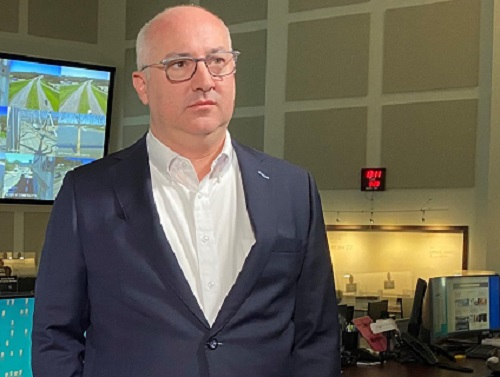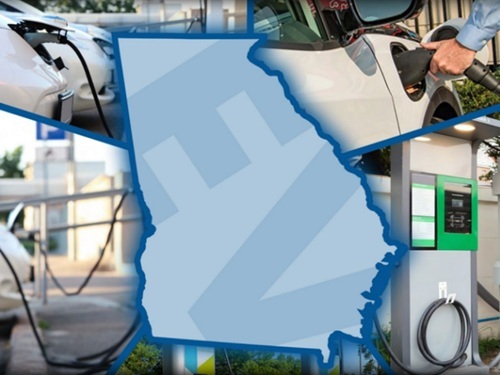Brad White (above, center), executive director of the Mississippi Department of Transportation, recently joined the agency’s “Extra Mile” podcast to discuss the department’s 2024 successes and talk about his continued push to modernize Mississippi DOT’s funding model during the 2025 state legislative session.
[Above photo by the Mississippi DOT]
“Our people did a lot of good work to get the projects programmed, ready for construction, and underway [in 2024],” he said on the podcast. “We’re real pleased with where we’re going and I hope that it proves to the legislature that we can be trusted with the money to carry out this core function of government in a very efficient and responsible way.”
However, when it comes to the agency’s funding model, White believes changes are needed to keep Mississippi DOT’s finances more stable for the future.
“We’re a state agency but we implement a federal program and it’s a reimbursement program in partnership with the Federal Highway Administration; they are in control of the federal dollars that make up for half or a little better than half of our budget,” he explained.
“But we have to spend our state funds first and they [FHWA] have to see that we’re doing things in accordance with their rules and regulations and to their standards; when they’re able to ascertain that, then they reimburse us with federal money,” White said. “So it’s not just that we get the money, but how we get it, that is extremely important. That impacts our ability to better run the transportation program.”

He noted that, in the past, the legislature had been “very kind” to give Mississippi DOT “a lot of one-time funding” to help escalate the agency’s transportation capacity program. In fact, during the 2024 legislative session, such one-time funding helped the agency supplement its paving programs around the state, he said.
“But hopefully the conversation for this coming session is going to be more about how we modernize this funding model. We haven’t modernized our funding model since 1987, which was the last time the fuel tax was adjusted,” White explained. “Now we have things like funding from the [state] lottery that gives us $80 million a year, along with fees on electric and hybrid vehicles that have come about in the last few years. But when you’re running a billion and a half dollar budget, $80 million doesn’t go that far.”
For the future, White believes a more “diversified” funding model is more practical; one where multiple streams of revenue could be identified within the state budget that could be sent to Mississippi DOT so it can maintain the state’s transportation system at an exemplary level.
“As I’ve said before, I think that can be done without raising anybody’s taxes,” he stressed. “It just takes recognition that this is a core function of government upon which all other functions of government rely upon – it is about just making it a priority.”
 States
States
Podcast: Flashing LED Lights Can Boost Roadway Safety
December 5, 2025 States
States

